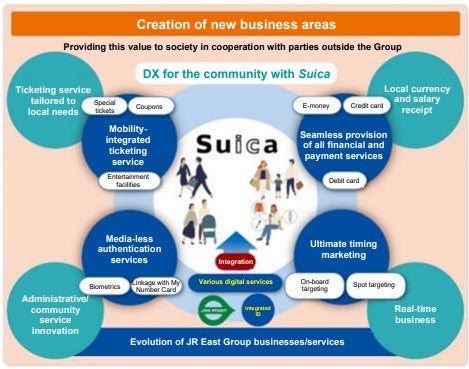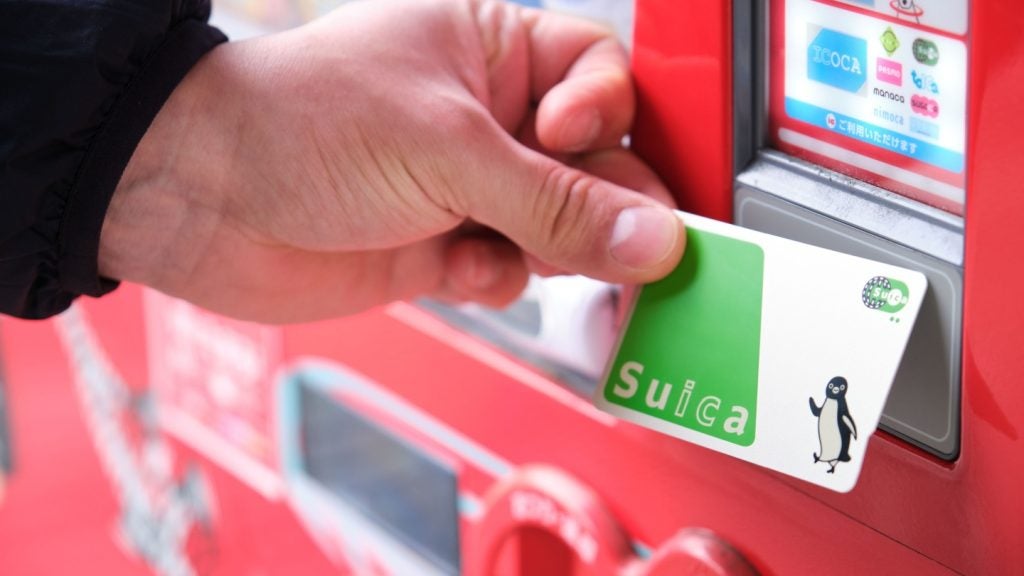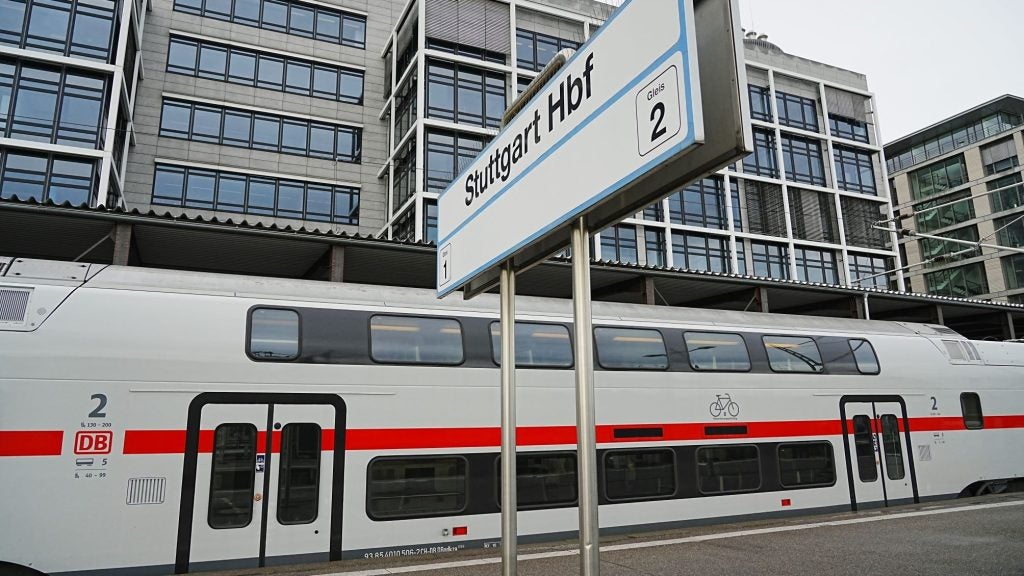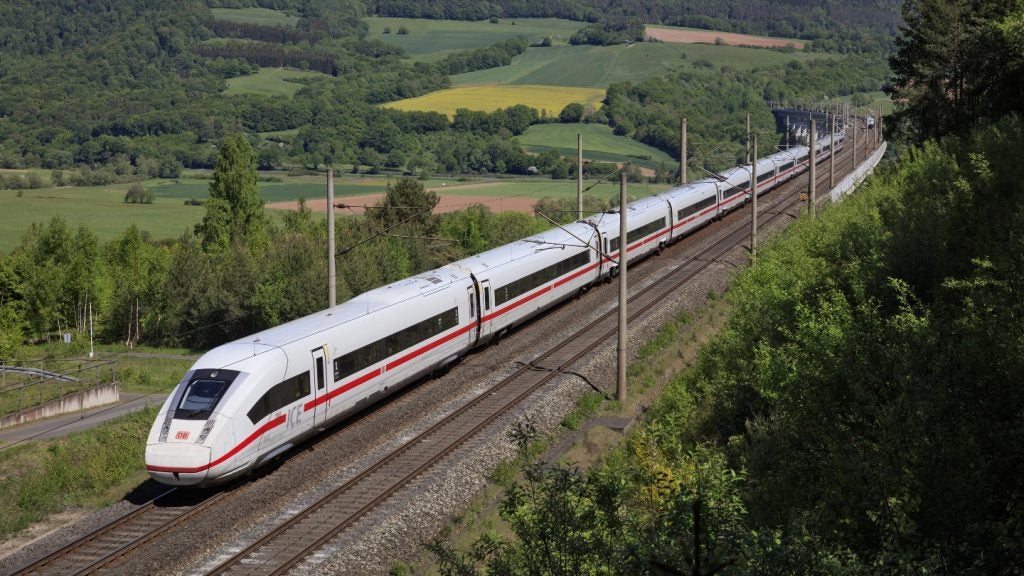Japanese rail operator JR East has unveiled a new growth strategy aiming to double the operating revenue and operating income of its Lifestyle Solutions business in ten years, by expanding its Suica system.
The ‘Beyond the Border’ strategy is designed to expand the business through the evolution of the electronic money system and physical prepaid and rechargeable cards. The company has created an app that links customers to a wide array of other platforms and services ranging from ticketing to commerce, financial services, and digital communication.
The Suica system is managed by JR East and can be used to pay fares on its rail services, as well as for almost any public transport service in Greater Tokyo. Alongside its initial transport use, the service allows customers to make other purchases at vendors including convenience stores.
JR East’s plan states: “The evolution of Suica means that Suica will be transformed from a device for mobility into a device for lifestyle, with dramatically improved convenience.”
Plans for the system include the integration of different IDs by 2028, alongside the launch of a new rail ticketing system that uses cloud migration to offer customers extra incentives such as a return fare discount if they spend a certain amount within a station.

The strategy scheduled the launch of the new Suica app for 2029, with functions continuously added for five years after, including biometric authentication and links to government and community services.
JR East also outlined a wide range of functions that could be added to Suica to integrate throughout customers' lives, with one example given that a food order curated for a person’s specific lifestyle, using health data, could also be timed for delivery based on when someone touches at a station entrance using the app.
Alongside its ambitious plans for the domestic market, the company also recently revealed that it would be launching a Welcome Suica app in 2025 that will allow international visitors to obtain a digital Suica card and link foreign credit cards.
The app would address an ongoing issue in Japan with visitors struggling to find new Suica cards for public transport after the global computer chip shortage forced a reduction in their availability.
Earlier this year, JR East signed a partnership with the UK’s University of Birmingham Centre for Railway Research and Education to explore innovative technologies for the rail industry, including digital transformation projects.












